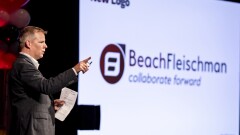Given how long the war for talent in the accounting profession has been going on, it will come as no surprise that the majority of a panel of managing partners, thought leaders, consultants and other experts surveyed by Accounting Today as part of our annual "Year Ahead" program predicted that staffing will be the biggest challenge for accountants in 2023, and by a large margin.
It is a multifaceted challenge, however, and the experts Accounting Today polled on the subject touched on a number of those facets. Some noted that the challenge is, to a certain degree, self-inflicted by firms' dependence on outmoded work models and insistence on overworking staff, particularly during tax season, while others spoke of the profession's lack of success thus far with diversity, and the dwindling pipeline of new CPAs and new accountants. Still others focused on the capacity constraints firms suffer under when they can't find the talent they need — a major problem at a time when demand for accounting services is high.
There were other challenges mentioned, though, including the need for firms to take a more intentional approach to their growth and management strategies, the uncertain condition of the overall economy, cybersecurity issues, and the perpetual challenge of staying relevant in an ever-changing world.
The panels' responses to the question, "What's the biggest challenge facing accountants in 2023?" are below. You can also see their thoughts on the


























